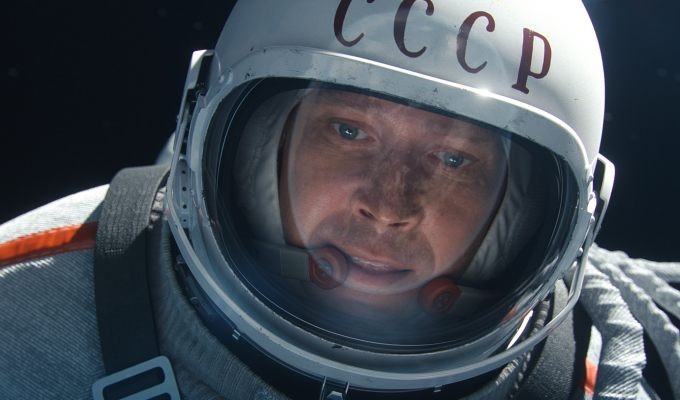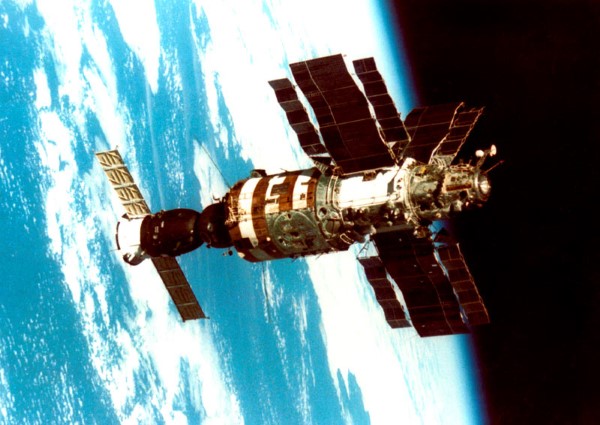On the eve of Cosmonautics Day filmmakers gathered at the Museum of Cosmonautics in order to talk about how this theme is presented in contemporary Russian cinema. It seems what could be incendiary here? However, whenever this subject is broached the discussion becomes very heated that sometimes it seems the exchange might end in a fight.
Who can forget how cosmonaut Alexander Alexandrov criticized Yuri Kara for this film “Korolev”. He flat out said: “Guys, you have trashed everything. You interpreted this life incorrectly.” Alexandrov also expressed himself rather strongly, so it is better not to cite his temperamental speeches here. Roscosmos then decided to cancel a premiere screening of “Korolev” in the Kremlin. In general, we cannot live without the cosmos, as film director Konstantin Bronzit aptly noted, titling his latest film with that very same phrase “We Cannot Live with the Cosmos”.
“First Time”

Director Yuri Bykov, well known to audiences for his films “Major” and “Fool” is busy working on his new picture “First Time”. It is dedicated to the first spacewalk, the 50th anniversary of which was came on March 18 of this year. The initiator of the project was actor Evgeny Mironov. He wanted to play Alexei Leonov and suggested this idea to producer Timur Bekmambetov.
Immediately after the conference at the museum Yuri Bykov head straight to auditions. The names of other actors remain a secret. The participants were shown a trailer for the film, which tells story of the flight of Vostok 2.
According to the official reports, the flight went smoothly. However, in reality that was not quite the case, and the details remained secret for many years. Alexei Leonov recalls how in the eighth minute of the spacewalk he felt the phalanges of his fingers slipped out of his gloves, his spacesuit started to deform and his feet started bouncing around in his boots. Leonov is acting as a consultant for the project.
“I was enthralled by this story after seeing a documentary about Alexei Leonov, and I understood that this story needs to be put on the big screen,” Evgeny Mironov says. “Hollywood would have long ago snapped up this opportunity if it was a triumphal page in their history.”
Yuri Bykov will tell not some much the story of the first venture of man into open space but the fate of the first group of cosmonauts and what Sergei Korolev achieved. According to the director, Leonov and Belyaev represented the peak of the achievement of the work of hundreds of people on earth. And since this is a contemporary film, it will not focus only on the enthusiasm of people captivated by an idea. It is important to show how a country boy grew up to become the first to walk in open space.
During the discussion the question arose whether the entire truth would be told about the event. After all, some believe that Leonov himself made a mistake during his spacewalk. Yuri Bykov said that in open space the amount of stress on Leonov could have affected his ability to perform what he had successful performed in different circumstances. And since the picture is not only about Leonov but also about those who prepared his flight on earth, Bykov will not allow anyone to understate the contribution of these people.
Enduring myths

Television journalist and documentary filmmaker Alexei Samoletov has already created a film titled “Alexei Leonov: A Jump in Space” which is being shown as part of the Space Doc Fest at the Museum of Cosmonautics. Now Alexei Samoletov is helping on the screenplay for the feature film “Salyut 7” which might be filmed by Bakur Bakuradze or another director in Sergei Selyanov’s company. Coauthors of the scenario are Alexei Chupov and Natalya Merkulova, who together filmed “Intimate Parts”.
“Salyut 7” will tell about the events which occurred when the space station went out of control, which happened in 1985. Vladimir Dzhanibekov and Viktor Savin were sent on a rescue operation. Their lives were in great danger for the entire 10-day operation. The repair work was done in open space and the orbital station could have begun and uncontrolled descent at any moment.
Natalya Merkulova believes that it is important to demonstration the psychological condition of the cosmonauts, as they were under enormous stress, and to tell about their personal lives. Having learned about the reality in which the heroes lived, she became awe struck by their modesty and beauty.
The history of cosmonautics has many interesting and yet untold stories. Alexei Samoletov is studying the work of Vladimir Chelomey, the Soviet mechanics scientist, aviation and missile engineer. It turns out that we could have gone to the moon several decades ago if the government had ordered this. However, an awful conflict arose: while remaining absolutely devoted to Korolev and understanding his greatness, Chelomey suddenly emerged stronger in many areas than his teacher. And politics got caught up in this situation. “If we make a feature film where the figure of Chelomey will be equal to that of Korolev, then we will start dispelling myths,” Samoletov said.
The feats of cosmonauts are something that is indisputable, notes Alexei Chupov. Yet every time attempts are made to create Russian films about space, the bashing begins. Filmmakers are doomed to fail. “What sets our films apart from “Gravitation”? That’s a science-fiction film, a fairytale, but “Salyut 7” and “First Time” are historical films about space based on real events,” Chupov notes.
Svetlana Khokhryakova









